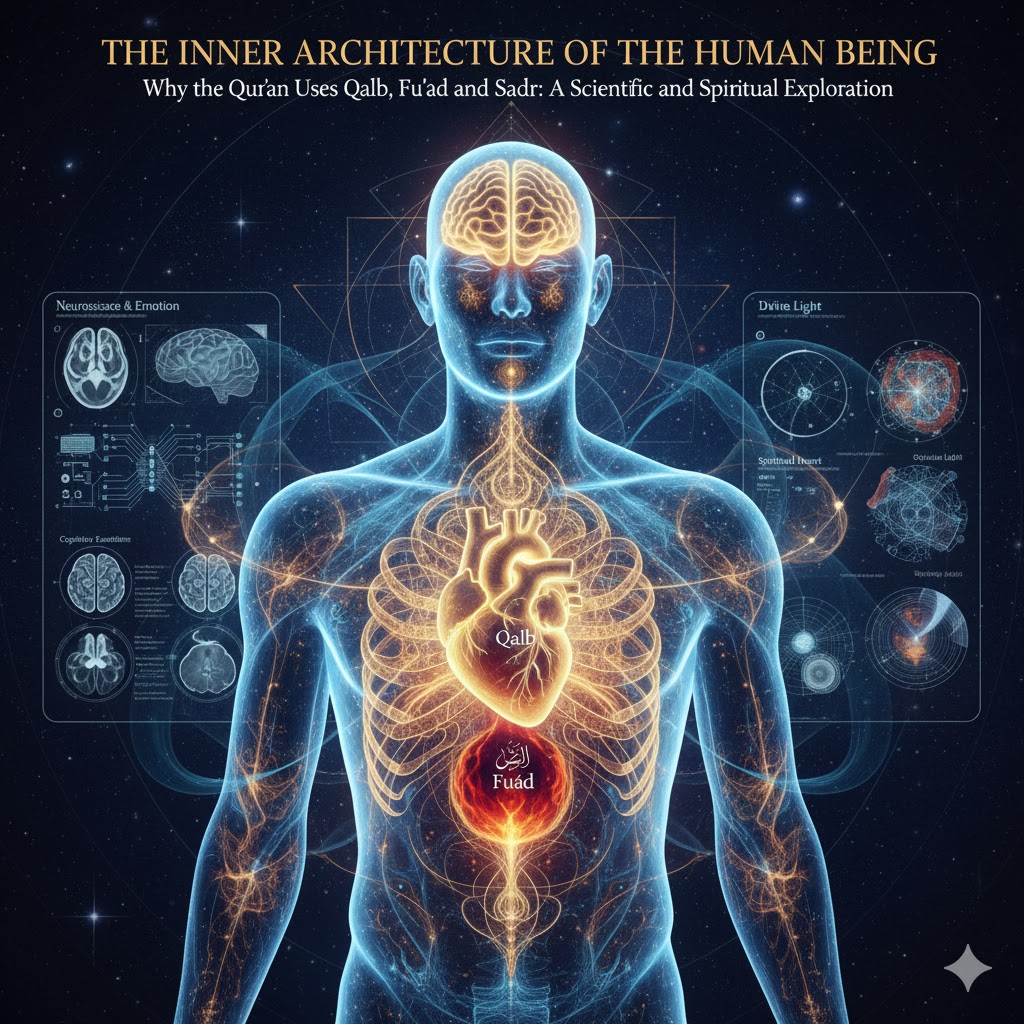Jihad in the Light of the Quran and Hadith: A Comprehensive Analysis
Introduction
Jihad, often misconstrued, is a concept in Islam that extends far beyond warfare. It encompasses various forms of striving for the sake of Allah, including personal, intellectual, and defensive efforts. This article explores the multifaceted nature of jihad according to Islamic teachings, addresses misconceptions, and examines its ethical and practical dimensions. We will also delve into the significance of Jihad bil-Sayf (struggle with arms) and its role in Islamic history and jurisprudence.
Defining Jihad and Its Categories
1. Definition of Jihad
The term “jihad” derives from the Arabic root “jahada,” meaning “to strive” or “to struggle.” In Islamic context, it refers to the struggle or effort made for the sake of Allah, encompassing a range of activities aimed at fulfilling religious obligations and promoting justice.
2. Categories of Jihad
Jihad can be classified into several categories, each serving a distinct purpose:
- Jihad al-Nafs (Personal Struggle): This refers to the internal struggle against one’s own sinful inclinations and the effort to cultivate piety and righteousness.
- Jihad bil-Qalam (Intellectual and Educational Effort): Involves the dissemination of knowledge, the correction of misconceptions, and the promotion of Islamic values through writing, teaching, and dialogue.
- Jihad bil-Lisan (Verbal Struggle): Entails speaking out against injustice, advocating for truth, and engaging in constructive debates.
- Jihad bil-Sayf (Struggle with Arms): Refers to the physical struggle in defense of the Islamic community, particularly when facing aggression or threats.
Quranic and Hadith References on Jihad
1. Quranic References
The Quran provides guidance on various aspects of jihad:
- Surah Al-Baqarah (2:190): “Fight in the way of Allah those who fight you but do not transgress the limits. Verily, Allah does not like transgressors.”
This verse sets the boundaries for warfare, emphasizing defense and prohibiting excess. - Surah Al-Anfal (8:61): “But if they incline to peace, then incline to it also and trust in Allah. Verily, He is the All-Hearer, the All-Knowing.”
This verse promotes reconciliation and peace, even during conflict. - Surah At-Tawbah (9:5): “But when the forbidden months are past, then fight and slay the pagans wherever you find them, and seize them, beleaguer them, and lie in wait for them in every stratagem of war.”
This verse must be understood in its historical context, emphasizing defense and not unprovoked aggression. - Surah Al-Ankabut (29:69): “And those who strive (jihad) in Our cause, We will certainly guide them to Our ways. For verily Allah is with those who do good.”
This verse assures divine guidance for those striving in the path of Allah.
2. Hadith References
Hadith literature provides further insights into jihad:
- Hadith: “The best jihad is a word of justice in the presence of a tyrannical ruler.” (Ibn Majah)
This hadith emphasizes that standing up for justice is a significant form of jihad. - Hadith: “Do not kill women, children, or the aged infirm. Do not destroy the crops or burn the trees.” (Bukhari)
This hadith outlines ethical conduct during warfare. - Hadith: “A Muslim is one from whose tongue and hand other Muslims are safe.” (Bukhari)
This hadith underscores the importance of ensuring the safety and security of others.
Jihad al-Nafs: The Personal Struggle
1. Definition of Jihad al-Nafs
Jihad al-Nafs, or personal struggle, involves striving against one’s own weaknesses and striving to live a life of piety and righteousness. This form of jihad focuses on personal development and moral integrity.
2. Quranic and Hadith References
- Surah Al-Mu’minun (23:1-11): “Successful indeed are the believers, who are humble in their prayers… and who guard their private parts… and who keep their trusts and covenants… and who strictly guard their prayers.”
These verses outline the characteristics of a successful believer. - Hadith: “The greatest jihad is to battle your own soul, to fight the evil within yourself.” (Ibn Hanbal)
This hadith highlights the importance of internal struggle in personal growth.
3. Principles of Personal Struggle
- Self-Discipline: Controlling desires and aligning actions with Islamic principles.
- Moral Integrity: Upholding high ethical standards and avoiding sinful behaviors.
- Spiritual Growth: Engaging in acts of worship and self-reflection to strengthen faith.
Jihad bil-Sayf: The Physical Struggle
1. Definition of Jihad bil-Sayf
Jihad bil-Sayf refers to armed struggle, typically in the context of defending the Islamic community from aggression or threats. This form of jihad is regulated by strict ethical guidelines and serves specific purposes within Islamic law.
2. Quranic and Hadith References
- Surah Al-Hajj (22:39): “Permission (to fight) has been given to those who are being fought because they were wronged, and indeed Allah is capable of granting them victory.”
This verse grants permission for defensive warfare and indicates that fighting is permissible only in the face of oppression. - Surah An-Nisa (4:75): “And what is wrong with you that you do not fight in the cause of Allah and for the oppressed among men, women, and children who say, ‘Our Lord, take us out of this town whose people are oppressors and give us from Yourself a protector and give us from Yourself a helper.'”
This verse emphasizes fighting for the protection of the oppressed and the establishment of justice. - Hadith: “The Muslim who participates in jihad is like one who fasts during the day and prays at night.” (Bukhari)
This hadith underscores the spiritual significance of participating in jihad for the sake of Allah.
3. Importance of Jihad bil-Sayf
Jihad bil-Sayf is essential for several reasons:
- Defense of the Faith: It allows for the defense of the Islamic community against aggression and threats.
- Preservation of Justice: It helps protect the rights and freedoms of individuals and communities.
- Restoration of Order: It aims to restore peace and order in situations of conflict and oppression.
4. Ethical Considerations
During jihad bil-Sayf, certain ethical principles must be followed:
- Protection of Non-Combatants: The lives of women, children, the elderly, and non-combatants must be protected.
- Respect for Property: Agricultural lands, homes, and public properties should not be destroyed.
- Humane Treatment: Prisoners of war should be treated with dignity and respect.
Misconceptions and Western Propaganda
1. Misconceptions About Jihad
Jihad has often been misunderstood and misrepresented:
- Jihad vs. Terrorism: Jihad is sometimes equated with terrorism, despite its actual meaning involving defense and justice.
- Political Exploitation: Certain political movements have misused the concept of jihad for their own purposes, which contradicts its Islamic principles.
2. Role of Western Media
Western media has played a crucial role in distorting the image of jihad:
- Negative Portrayal: Media often emphasizes the violent aspects of jihad, overshadowing its broader, peaceful dimensions.
- Political Narratives: Media narratives can reflect political agendas, leading to further misconceptions about jihad.
3. Political Exploitation
Politicians and media have exploited the concept of jihad for various agendas, impacting public perception and contributing to widespread misunderstandings.
Ethical Considerations and Principles of Jihad
1. Ethical Conduct
The ethical conduct during jihad includes:
- Respect for Human Life: Ensuring the safety of non-combatants and avoiding unnecessary harm.
- Pursuit of Peace: Seeking reconciliation and resolving conflicts through peaceful means when possible.
2. Limits and Principles of Warfare
Jihad in warfare is governed by specific principles:
- Avoiding Innocents: Combat should not target innocent people.
- Efforts for Peace: Negotiations and peaceful resolutions should be prioritized.
Atheist Criticism:
Some atheist critiques of jihad stem from a broader skepticism about religion and its role in society. While questioning and critique are part of intellectual discourse, it’s important to approach religious concepts with nuance and understanding. Misrepresentations or selective readings of religious texts can lead to biased conclusions. Engaging in informed dialogue and highlighting the ethical teachings and peace-promoting aspects of Islam can help counteract these criticisms.
Conclusion
Jihad, as presented in the Quran and Hadith, encompasses a broad range of activities aimed at promoting justice, peace, and personal development. From personal struggle (Jihad al-Nafs) to intellectual efforts (Jihad bil-Qalam) and defensive warfare (Jihad bil-Sayf), each form of jihad has its own significance and guidelines. Misrepresentations and political manipulations have distorted the concept of jihad, leading to widespread misconceptions. By understanding the true essence of jihad and its ethical considerations, one can appreciate its role in promoting a just and peaceful society.
References from Quran
Jihad in the Path of Allah
Jihad refers to exerting maximum effort and striving hard in a righteous cause, enduring all kinds of hardships and difficulties. There are various forms of jihad, including jihad by knowledge, jihad by wealth, jihad by action, jihad by self-purification, and jihad by combat. This section includes translations of Quranic verses related to jihad by combat.
Verses from the Quran on Jihad by Combat:
“Similarly, those who have no knowledge say: ‘Why does Allah not speak to us, or why does a sign not come to us?’ The same way their people before them said the same. Their hearts are alike. We have indeed made the signs clear for people who firmly believe.”
Surah Al-Baqarah (2:118)
“Indeed, there was a sign for you in the two groups that met [in battle]. One group was fighting in the way of Allah, and the other was disbelievers. They saw them with their own eyes twice their number. But Allah supports with His victory whom He wills. Indeed in that is a lesson for those with vision.”
Surah Al-Imran (3:13)
“Or do you think that you will enter Paradise while Allah has not yet made evident those of you who strive in His cause and those who are patient?”
Surah Al-Imran (3:142)
“So their Lord accepted their prayer [and said], ‘Never will I allow to be lost the work of [any] worker among you, whether male or female; you are of one another. So those who emigrated or were evicted from their homes or were harmed in My cause or fought or were killed – I will surely remove from them their misdeeds, and I will surely admit them to gardens beneath which rivers flow as a reward from Allah, and Allah has with Him the best reward.'”
Surah Al-Imran (3:195)
“O you who have believed, when you go forth in the cause of Allah, investigate; and do not say to one who gives you [a greeting of] peace ‘You are not a believer,’ aspiring for the goods of worldly life; for with Allah are many acquisitions. You [yourselves] were like that before; then Allah conferred His favor upon you, so investigate. Indeed, Allah is ever, with what you do, Acquainted. Not equal are those believers remaining [at home] – other than the disabled – and the mujahideen, [who strive and fight] in the cause of Allah with their wealth and their lives. Allah has preferred the mujahideen through their wealth and their lives over those who remain [behind], by degrees. And to all, Allah has promised the best [reward]. But Allah has preferred the mujahideen over those who remain [behind] with a great reward – Degrees [of high position] from Him and forgiveness and mercy. And Allah is ever Forgiving and Merciful.”
Surah An-Nisa (4:94-96)
“O you who have believed, fear Allah and seek the means [of nearness] to Him and strive in His cause that you may succeed.”
Surah Al-Ma’idah (5:35)
“Indeed, those who have believed and emigrated and fought with their wealth and lives in the cause of Allah and those who gave shelter and aided – they are allies of one another. But those who believed and did not emigrate – for you there is no support until they emigrate. And if they seek help of you for the religion, then you must help, except against a people between yourselves and whom is a treaty. And Allah is Seeing of what you do.”
Surah Al-Anfal (8:72)
“And those who believed and emigrated and fought in the cause of Allah and those who gave shelter and aided – it is they who are the believers, truly. For them is forgiveness and noble provision. And those who believed after [the initial emigration] and emigrated and fought with you – they are of you. But those of [blood] relationship are more entitled [to inheritance] in the decree of Allah. Indeed, Allah is Knowing of all things.”
Surah Al-Anfal (8:74-75)
“Do you think that you will be left [as you are] while Allah has not yet made evident those among you who strive [for His cause] and do not take other than Allah, His Messenger and the believers as intimates? And Allah is Acquainted with what you do.”
Surah At-Tawbah (9:16)
“Have you made the providing of water for the pilgrim and the maintenance of al-Masjid al-Haram equal to [the deeds of] one who believes in Allah and the Last Day and strives in the cause of Allah? They are not equal in the sight of Allah. And Allah does not guide the wrongdoing people. The ones who have believed, emigrated and striven in the cause of Allah with their wealth and their lives are greater in rank in the sight of Allah. And it is those who are the attainers [of success]. Their Lord gives them good tidings of mercy from Him and approval and of gardens for them wherein is enduring pleasure. [They will be] abiding therein forever. Indeed, Allah has with Him a great reward.”
Surah At-Tawbah (9:19-22)
“O you who have believed, what is [the matter] with you that, when you are told to go forth in the cause of Allah, you adhere heavily to the earth? Are you satisfied with the life of this world rather than the Hereafter? But what is the enjoyment of worldly life compared to the Hereafter except a [very] little. If you do not go forth, He will punish you with a painful punishment and will replace you with another people, and you will not harm Him at all. And Allah is over all things competent.”
Surah At-Tawbah (9:38-39)
“But the Messenger and those who believed with him fought with their wealth and their lives. Those will have [all that is] good, and it is those who are the successful. Allah has prepared for them gardens beneath which rivers flow, wherein they will abide eternally. That is the great attainment. And those with excuses among the bedouins came to be permitted [to remain], and they who had lied to Allah and His Messenger sat [at home]. There will strike those who disbelieved among them a painful punishment. There is not upon the weak or upon the ill or upon those who do not find anything to spend any discomfort [when they are sincere to Allah and His Messenger]. There is not upon the doers of good any cause [for blame]. And Allah is Forgiving and Merciful. Nor [is there blame] upon those who, when they came to you that you might give them mounts, you said, ‘I can find nothing for you to ride upon.’ They turned back while their eyes overflowed with tears out of grief that they could not find something to spend [for the cause of Allah]. The cause [for blame] is only upon those who ask permission [of you] while they are rich. They are satisfied to be with those who stay behind, and Allah has sealed over their hearts, so they do not know. They will make excuses to you when you have returned to them. Say, ‘Make no excuse – never will we believe you. Allah has already informed us of your news. And Allah will observe your deeds, and [so will] His Messenger; then you will be taken back to the Knower of the unseen and the witnessed, and He will inform you of what you used to do.’ They will swear by Allah to you when you return to them that you would leave them alone. So leave them alone; indeed, they are evil. And their refuge is Hell as recompense for what they had been earning. They swear to you so that you might be satisfied with them. But if you should be satisfied with them – indeed, Allah is not satisfied with a defiantly disobedient people.”
Surah At-Tawbah (9:88-96)
“Indeed, Allah has purchased from the believers their lives and their properties [in exchange] for that they will have Paradise. They fight in the cause of Allah, so they kill and are killed. [It is] a true promise [binding] upon Him in the Torah and the Gospel and the Quran. And who is truer to his covenant than Allah? So rejoice in your transaction which you have contracted. And it is that which is the great attainment.”
Surah At-Tawbah (9:111)
“O you who have believed, fear Allah and be with those who are true. It was not [proper] for the people of Madinah and those surrounding them of the bedouins that they remain behind after [the departure of] the Messenger of Allah or that they prefer themselves over his self. That is because they are not afflicted by thirst or fatigue or hunger in the cause of Allah, nor do they tread on any ground that enrages the disbelievers, nor do they inflict upon an enemy any infliction but that is registered for them as a righteous deed. Indeed, Allah does not allow to be lost the reward of the doers of good. Nor do they spend an expenditure, small or large, or cross a valley but that it is registered for them that Allah may reward them for the best of what they were doing. And it is not for the believers to go forth [to battle] all at once. For there should separate from every division of them a group remaining to obtain understanding in the religion and warn their people when they return to them that they might be cautious.”
Surah At-Tawbah (9:119-122)
“O you who have believed, fight those adjacent to you of the disbelievers and let them find in you harshness. And know that Allah is with the righteous.”
Surah At-Tawbah (9:123)
“Those who believe say, ‘Why has a surah not been sent down?’ But when a precise surah is revealed and fighting is mentioned therein, you see those in whose hearts is disease looking at you with a look of one overcome by death. But more appropriate for them [would have been]. Obedience and good words. And when the matter [of fighting] was determined, if they had been true to Allah, it would have been better for them.”
Surah Muhammad (47:20-21)
“So do not weaken and call for peace while you are superior; and Allah is with you and will never deprive you of [the reward of] your deeds.”
Surah Muhammad (47:35)
“O you who have believed, shall I guide you to a transaction that will save you from a painful punishment? [It is that] you believe in Allah and His Messenger and strive in the cause of Allah with your wealth and your lives. That is best for you, if you should know.”
Surah As-Saff (61:10-11)
These verses from the Quran collectively emphasize the importance of jihad in the cause of Allah, encouraging believers to strive with their wealth and lives. They highlight the significance of fighting in Allah’s cause, the rewards promised for such efforts, and the superiority of those who engage in jihad over those who do not.










